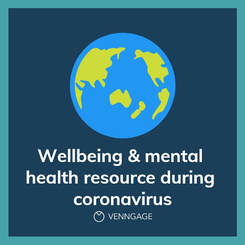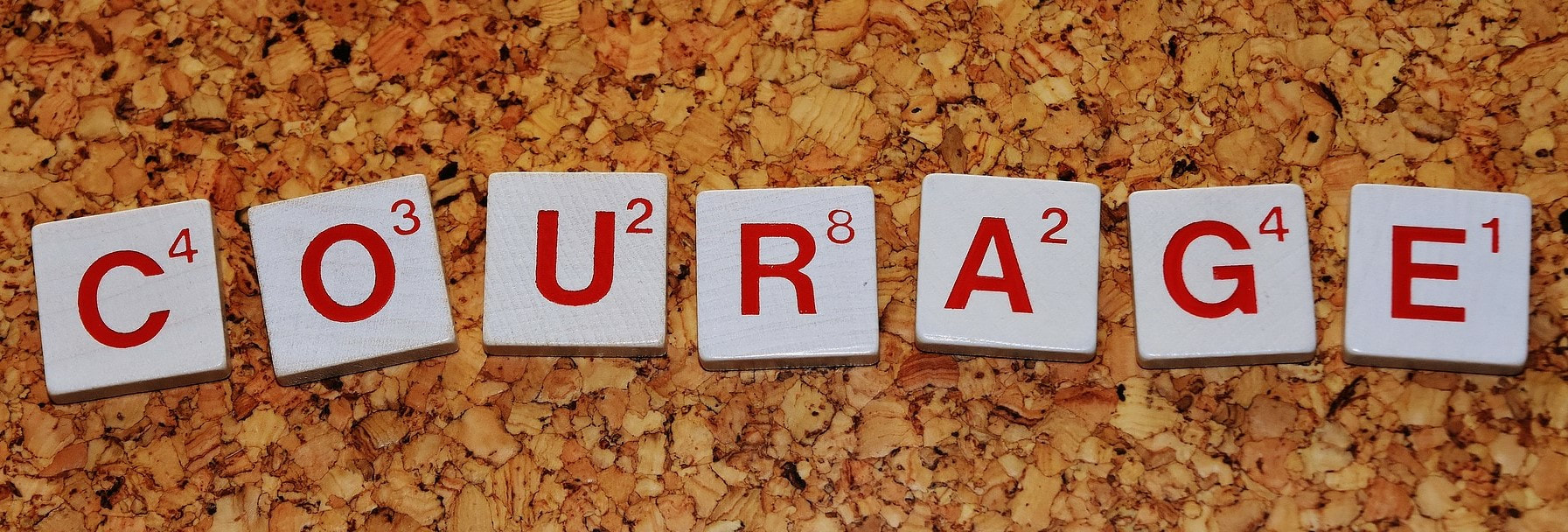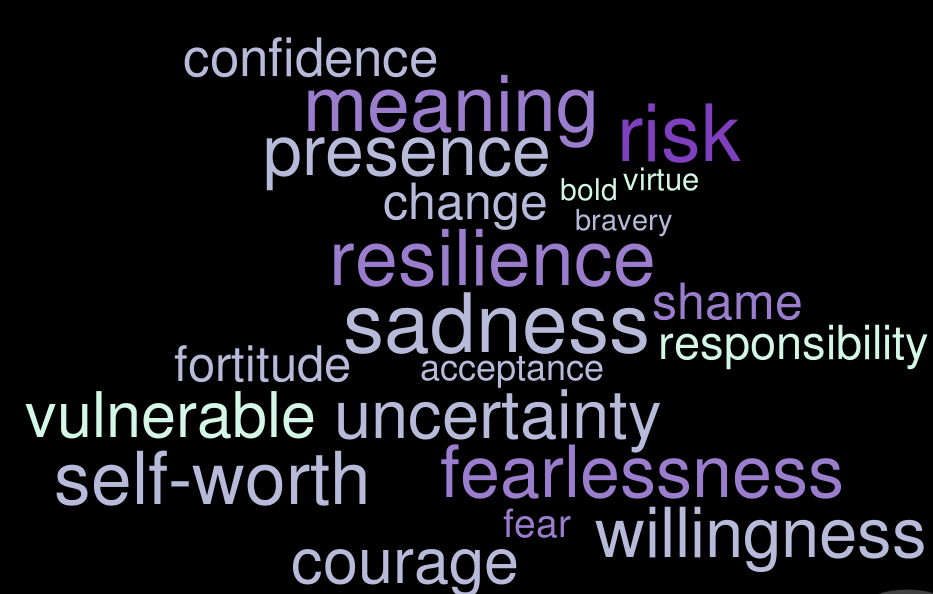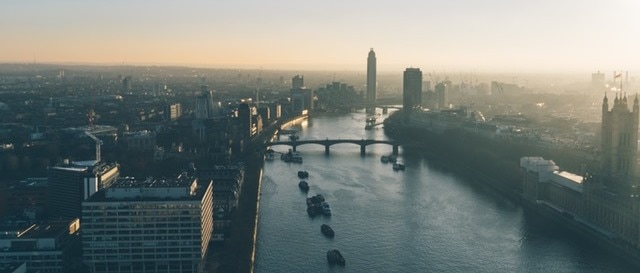|
I have developed a poster regarding my research to present at the British Psychology Society's Division of Counselling Psychology Annual Conference 2021. The conference theme this year is "Age of Anxiety". My doctoral research is titled: A phenomenological investigation into the lived experience of courage for clients in psychological therapy. The poster can be viewed below. I welcome discussions about the poster and my research, so please do get in touch. Lion image © puckillustrations
0 Comments
 This information and signposting resource offers a broad selection of ideas and suggestions to help support general wellbeing, and to also consider others, as we collectively live through these challenging times. It focuses on general mental health, physical health, social connection and kindness, and daily self-care. This resource can’t cover everything and everyone, but there is lots to choose from, so hopefully a few of these ideas will be of interest to you. Download below, and please feel free to share as you wish.
As I drafted my literature review for my research – A phenomenological investigation into the experience of courage for clients in psychotherapy - I was struck by the lack of research which seeks to explore courage, and in particular, how people may experience it in therapy. This perplexed me as ‘courage’, the word itself, is one we are all familiar with. It is not psycho-babble or jargon, but something we each have some understanding of, even if we feel we have not personally experienced or demonstrated it. Throughout the ages, philosophers sought to understand courage. In Laches, Plato explores various definitions of courage, and though he suggests it is a virtue we should each foster within ourselves, he is unable to clearly define it. In his pursuit to ‘know thyself’ and the facets of human character Socrates discovered more about what courage is not than what it is. Picking up this thread, his student Aristotle argued that there are different types of courage such as physical, moral and emotional, developing a typology that points to the amorphic nature of this phenomenon.
Courage has consistently appeared in religious texts, from the Bible to Buddhist scriptures, and many of us will be familiar with popular culture references to courage. When I ask people what they think of when they consider courage, the Cowardly Lion from the Wizard of Oz is recalled time and again. A Google search of courage brings up a treasure trove of quotes from renown figures: Political leader, Nelson Mandela - ‘I learned that courage was not the absence of fear, but the triumph over it.’ American writer, Mark Twain - ‘Courage is the resistance to fear, mastery of fear, not the absence of it’. Poet, Maya Angelou – ‘Courage is the most important of all the virtues because without courage, you can't practice any other virtue consistently.’ Research Professor, Brené Brown – ‘Courage starts with showing up and letting ourselves be seen.’ As you digest this allow yourself to reflect: How do I think about courage? What does it mean to me? Personally, I understand the above offerings on an intellectual level, but the suggestion that courage is a virtue, which in my mind makes it ‘special’ and something other people do, makes it difficult for me to connect with. For me, courage becomes more real and embodied when I think about my struggles to know myself in the ordinariness of life. My years in therapy as a client have helped me see myself more clearly – my character, how I relate to people, my successes and failures – and from this I have come to recognise times when I demonstrated courage, and times when I did not. These reflections provoked my interest in researching courage. I am curious to hear other people’s perspectives, which is why I am focusing on clients’ experiences in my study. Investigating clients’ perspectives in psychotherapy is a growing priority in empirical research, and I hope that my research will contribute to this important narrative which seeks to centralise clients’ voices and understand their needs. Does any of this resonate with you, and your experiences in psychotherapy? If so, I would love to hear from you. Your participation in my research will enrich our understanding of courage in psychotherapy and potentially inform how we consider courage, thereby providing a valuable contribution to research and clinical practice. For more information, visit here or get in touch. Research Title: A phenomenological investigation into the experience of courage for clients in psychological therapy/psychotherapy.
Do you identify as someone who experienced your own courage while you were in psychotherapy? I am conducting a piece of research about clients’ experiences of their own courage in psychotherapy. If the above resonates with you, I would love to hear from you. Criteria to be included in the research:
Participating in this research will give you the opportunity to confidentially reflect on your experiences in therapy. Your participation will also greatly contribute understanding clients’ experiences of therapy, and the broader field of psychotherapy. To take part please contact Léann Lavery: [email protected]. We come together in solidarity and community, and I also share some thoughts to help process responses and feelings to these events. I first want to say this - my sorrow and heartfelt love goes out to everyone affected by the attacks happening here and far away, and I also want to share my huge gratitude to the emergency services for their incredible bravery and dedication. Londoners and worldwide friends I know and don’t know, thank you for reaching out in solidarity.
Last night London was attacked. Again. The frequency of these attacks in the UK, Europe, the Middle East, and as far as I can tell, everywhere, is invading every aspect of our lives. I was at a concert at the Royal Albert Hall last night and as it ended, just after 10pm, we all filed out of the venue. Thoughts of the Manchester attack leapt into my mind, I thought, ‘My God, we are so vulnerable here, we could be attacked right now.’ I bet most of my fellow audience members had the same thoughts. At that point, I was unaware of what was happening across town in London Bridge. Within half an hour I heard what was unfolding and my immediate response was a wish to hide because I didn’t want to let the fear take hold. That lasted about five minutes and then it did, it took hold. I was soon scrolling through social media and news sites looking at the visuals and personal accounts of the attack as I welled up with terror, anger, confusion, helplessness and nausea. I just couldn’t process the enormity of it. So here we all are in the aftermath of more violence, the sort of violence we can’t escape because it’s unpredictable and pervasive - it could happen anywhere, at any time. This morning I told a friend of mine I was in shock. Why did I say that? The fact that people can carry out such horrendous acts is shocking to me, but I’m not shocked. I knew this would happen, and I also know that it could happen again. Does this resonate with you? Our individual and collective notions of safety have been assaulted. My mind, body and heart feel besieged and again, I’m certain I’m not alone in this. For me, that’s the point – realising that so many people feel as confused and scared as I do gives me comfort in a strange way. Right across the globe, people are connected in their shared feelings of fear, grief and their efforts to reach out in solidarity. I feel lifted by the spontaneous outreach of generosity from people who were offering places to stay, cups of tea, blood donations, offers of lifts, food and more. The sheer ordinariness of these offers makes it even more heartening, and the volume of care helps me to not lose faith in humanity. I hold this in one hand while I sit here writing this with heaviness in my heart. Attacks like last night might happen again, and I ask myself how can we find ways to move through this collective pain and carry on. Because carry on we must. As our Mayor Sadiq Khan said, ‘This is our city… and we will never be cowed by terrorism’. I am a psychotherapist and I am fortunate to have learned skills and techniques that help me process, at least partly, some of what I’m feeling, not just in relation to the terrorist attacks, but the challenges of life. There is no magic panacea that will completely heal our visible and invisible wounds, and I don’t wish to trivialise any of this – our fears and trauma are very real. However, finding a way (or ways) to understand and begin to process your physical, mental and emotional responses will hopefully be of some use. Your feelings of fear, and your responses to that fear are entirely normal. I don’t mean to sound patronising but so often I hear people feeling as though they are weird, or that there is something wrong with them because of the way they respond to fear. I don’t know anyone who is impervious to fear, stress and anxiety; these feelings and more are triggered and exacerbated by traumatic events. Different parts of your brain fire up during and after the event, you release stress hormones, your body responds by moving you into action or you freeze. All of your physical, mental and emotional responses are normal, and it will likely take you time to process them. Breathe. I always ask my clients how their breathing is when I see them in heightened emotional states, and they look back at me like I’ve got two heads. Of course, as alive human beings we are all breathing, but what is the quality, depth and intention of your breath? Your breath is yours, you alone control it and it gives you life. See what it’s like to pay attention to it. There are countless videos and articles that demonstrate breathing techniques that help decrease stress levels, here’s just one article I came across. Bring awareness to your body. I used to think body awareness was pretty barmy, but nevertheless I tried it and I have been amazed how I’ve become more aware of my emotions when I pay attention to sensations and tension in my body. This can help release negative symptoms of difficult feelings and memories. Most trauma specialists use the body to help people process trauma. Whether you were affected directly or indirectly by the recent attacks, we are all feeling their aftermath. So if you are dealing with any kind of kind of trauma, or emotional turmoil you might want to look at these YouTube videos from Babette Rothschild about recovering from trauma. Mobilise your trauma alongside your friends, family or members of your community. Humans are inherently social, and the cohesiveness of working together for the common good invites healing. A trauma specialist called Bessel van der Kolk (podcast: How trauma lodges in the body) has conducted numerous studies about dealing with trauma. He found that after natural disasters or terrorist attacks which cause enormous stress to individuals and communities, people are driven to move, help and rebuild. These kinds of acts are critical to our healing as they integrate our bodies with our minds and feelings, and we do this alongside members of our community. We can all see evidence of this from the outpouring of active help from the public in London, Manchester and Paris. Feel what you need to feel and if you can, try to find a healthy way to express it. This builds on the last point, but is more connected to how you live your life day-to-day. They ways in which we do this are as unique and paradoxically common as we each are: talk to a friend, take the dog out, meditate, do some exercise, attend vigils, engage in some sort of creative activity, cook, or get additional support if you feel you need it. Last night, I hid for a few moments and then I cried, I really sobbed. We can only cry for so long, and when I was ready I reached out to my friends and family. I love getting into nature, so this morning I went to the park with people I love and a Labrador, and now I’m writing this blog. Take the time and space you need to find your own way. I’m sharing these thoughts and ideas because I feel driven to act. It’s a pretty minor thing to do, and maybe these words are just for me; I don’t know who is going to read this and if they do, it may not land with the reader. Yet, writing and sharing this is doing something. Some small cathartic movements are happening inside me, and my fellow Londoners be warned - I will smile and talk to you on the Tube. I will not be cowed. |
AuthorSome blogs and views about mental health and wellness by psychotherapist, Leann Lavery. Archives
July 2021
Categories
All
|
||||||




 RSS Feed
RSS Feed